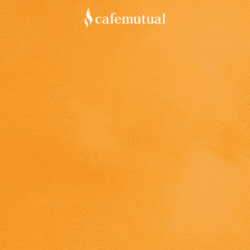Launched in October 1986, India’s first diversified equity fund UTI Mastershare Unit Scheme has recently turned 30.
This is the first market linked equity scheme which didn’t guarantee returns. Earlier, funds like UTI Unit Scheme 64 either offered assured returns or indicated returns.
Since the fund has been around for such a long time, it has many untold stories.
Mumbai based MF distributor Sadashiv Phene believes that UTI Mastershare has played an important role in shaping his advisory career. Sharing his story with Cafemutual, he says, “I started my career when the UTI Mastershare Unit Scheme was launched. This was the first scheme which didn’t offer fixed returns due to its market linked structure. It was very difficult to sell this product. However, I had a conviction in its structure and somehow managed to sell it to a few clients. Surprisingly, in just six years, investors witnessed ten times growth in their investment. The Rs. 10 unit of Mastershare was quoting at Rs. 100 which was over and above the yearly dividend payouts. These clients were so impressed with the performance of the scheme that they started giving me referrals. I used to distribute post office schemes and decided to completely shift my focus to mutual fund distribution.”
Another example is Rajkot based advisor Ramkumar H Barchha. Ram was looking after his family business and was responsible for the company’s finances. His company had made huge investments in UTI Mastershare Unit Scheme. Amazed by the returns, he started doing research on mutual funds and after a few years, he became an adviser. “We had invested huge amount of money in this scheme on the recommendation of our adviser. The experience was good and I started doing a lot of reading to know more about mutual funds. Eventually, I developed a keen interest in mutual funds and took up mutual fund advisory as a full time profession,” recalls Ramkumar.
Not only did the scheme create successful advisers for the MF industry, it has also made a lot of investors happy. Ritesh Deepak Sheth of Tejas Consultancy believes that UTI Mastershare has created equity cult among investors. Even before Ritesh joined his father’s business, he says that the fund was very popular among investors. He recalls that one of his father’s client who had invested in the scheme some 25 years ago still buys units of Mastershare on his birthday. In fact, many investors used to walk-in to my office to invest in this fund, he said.
UTI Mastershare Unit Scheme was a close end scheme and was listed on stock exchanges. There was no daily NAV disclosure that time and used to be traded actively, often at a price that was not in sync with its underlying portfolio. The fund was later made open end.
But Mastershare is more popular for its annual dividends that the fund used to declare during Diwali festival. Sanjay Sinha of Citrus Advisors who used to manage this fund told Cafemutual that this fund was a hit among investors due to its annual dividend disbursal policy during Diwali. “No matter what happened to underlying stocks, the company paid out handsome dividends; sometimes even from unrealized gains.”
The fund used to follow a multi-cap strategy in its initial days. However, it has now become a diversified equity fund with high exposure to large-cap stocks.
This scheme has seen many fund manager changes. In fact, between 2000 and 2006, around four fund managers had come and gone. In December 2006, Swati Kulkarni took over this scheme. The first thing she did was rationalizing the number of stocks from 80 to nearly 32 stocks currently. She also reduced exposure to mid and small cap stocks to cut down the risk in the portfolio. In fact, the latest fund fact sheet of this scheme shows that it has 79% exposure to large cap stocks.
The fund manages AUM of Rs. 3,502 crore as on September 2016 and has generated 18% CAGR return since inception.






